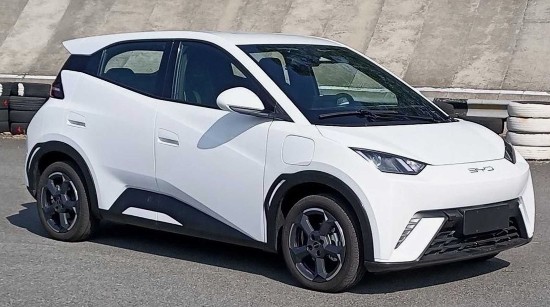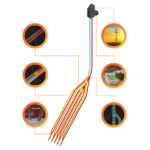After reading my recent posting on lithium-air batteries, Martin Pablo Leon O’Farrell, who lives in Argentina, wrote to ask why I hadn’t written anything about sodium-ion (Na-ion). I must admit I hadn’t read much about the use of sodium anodes in batteries. We exchanged emails and pointed me to work being done in China where several electric vehicles (EV) models were using sodium-ion rather than Li-on for power. After a little more digging, I came across an article describing how Volkswagen was looking at Na-ion batteries for some future EV models.
If you didn’t know it, sodium is actually a metal. We don’t tend to think of it as such because sodium can be found in salt. But because it is metal sodium can hold an electrical charge. And since the ocean is filled with it making it among the most abundant materials on the planet, a battery using sodium would make sense.
But the challenges I describe in my latest discussion on lithium-air versus Li-ion hold for Na-ion batteries. Na-ion batteries have a relatively low energy density compared to Li-ion, and certainly, significantly lower than the developments being done at Argonne Research Laboratory using lithium-air technology.
By weight, a Li-ion battery generates 48% greater voltage than a comparable-sized Na-ion one. That matters if you are trying to move a 1,000-kilogram (2,200-pound) EV let alone one even heavier.
Another challenge comes from the liquid electrolytes used to work with Na-ion anodes. To date, these liquids are highly inflammable. So why not use a solid electrolyte? Because Na-ion performance with the latter is worse than if it were to use a liquid electrolyte.
So to run a current Tesla Model S which weighs over 2,000 kilograms (4,400 pounds) you would need a battery pack at least 50% larger and heavier for equivalency. And because of the heavier battery pack, the disadvantages would be even greater.
What are some other disadvantages?
- Na-ion batteries lack an existing supply chain for sourcing and manufacturing.
- With only limited exposure in the market, Na-ion batteries are not cost-competitive with Li-ion.
- Where Li-ion has been adapted to multiple form factors and shapes, Na-ion has not.
Set against those disadvantages are the following advantages:
- Na-ion should in time have a much lower material cost because sodium is widely available on the planet.
- Na-ion batteries exhibit faster recharge rates and longer lifecycles of use.
- Na-ion can operate in a wider range of temperatures without losing performance.
China Builds Na-ion Powered EVs
BYD is a Chinese rival to Tesla. It has plans to launch a small EV that will run using a Na-ion battery pack. Called the Seagull, this is a low-range vehicle. BYD has been testing a larger EV running on Na-ion called the Dolphin. The Seagull, however, will be a micro-EV with an extended range of 300 kilometres (about 180 miles). Its U.S. pricing is between $8,850-$14,750. The car’s affordability makes up for its restricted range and power. But it should make Na-ion battery technology a player in the rapid-rising EV market.
A Final Note
A note to Mr. O’Farrell. I know I never talked about Na-ion in my previous posting. But I never mentioned aluminum or iron-air, lithium-iron-phosphate, or potassium-ion batteries. Nor did I talk about nickel-cobalt-aluminum or nickel-manganese-cobalt batteries. Some of these storage technologies are in use today while others remain in development.
The search for economical alternatives to Li-ion technology will continue to go on as long as lithium prices continue to climb, and supply remains monopolized by China. But right now and for the foreseeable future, Li-ion owns the battery global market. It will be interesting to see if lithium-air reinforces this metal’s lead over sodium and other potential contenders.

















[…] swan song for lithium-ion (Li-ion) batteries soon? With Chinese automobile manufacturers revealing new sodium-ion (Na-ion) battery-powered electric vehicle models recently, and now the invention by TU Wien (Vienna University of Technology) of an […]
[…] April I wrote about BYD, a Chinese electric vehicle (EV) manufacturer, that is using sodium-ion (Na-ion) battery packs instead of lithium-ion (Li-ion) in some of its […]
[…] isn’t the only battery being used by EV manufacturers. BYD, the Chinese EV manufacturer that surpassed Tesla in sales in the last month offers cars running on […]
[…] that in the beginning produced lower energy-density levels than Li-ion. But Na-ion batteries are now found in electric vehicles and energy-density levels are improving. I suspect that aqueous batteries should see a similar […]